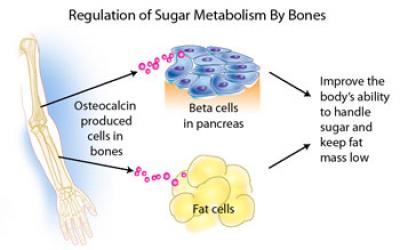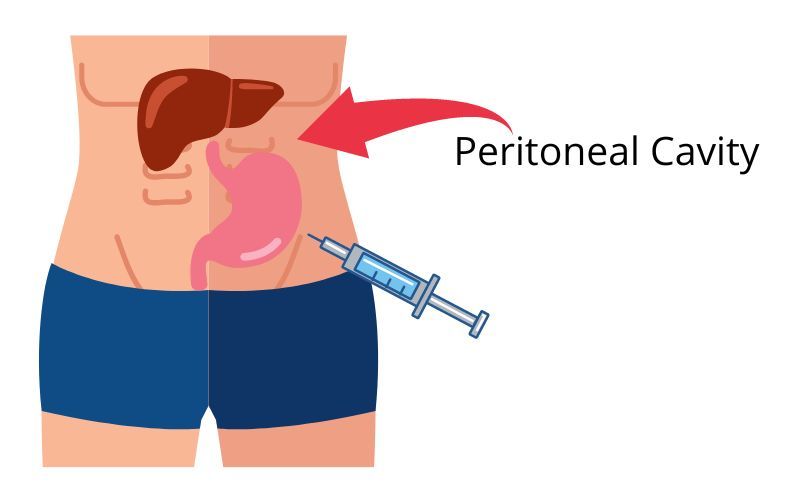Alzheimer's disease is characterized by the accumulation of amyloid β peptides and impaired glucose metabolism in the brain. Traditionally when there is impaired glucose metabolism the focus is on:
- Sugar
- Insulin
- And cholesterol
Yet there are other biological entities at work in this case. Osteocalcin, an homonal protein, is secreted by osteoblasts. Osteoblasts are cells that synthesize bone.
 Patients with type 2 diabetes mellitus (T2DM) and/or cardiovascular disease (CVD), conditions of hyperinsulinaemia, have lower levels of osteocalcin and bone remodelling, and increased rates of fragility fractures.
Patients with type 2 diabetes mellitus (T2DM) and/or cardiovascular disease (CVD), conditions of hyperinsulinaemia, have lower levels of osteocalcin and bone remodelling, and increased rates of fragility fractures.
In this study, daily intraperitoneal injection of osteocalcin for 4 weeks ameliorated the anxiety-like behaviors and cognitive dysfunctions in the APP/PS1 transgenic Alzheimer's disease mice model
 Aβ burden in the hippocampus and cortex of Alzheimer's disease mice was ameliorated by osteocalcin. Besides, osteocalcin improved the neural network function of the brain, mainly in the enhanced power of high gamma band in the medial prefrontal cortex of Alzheimer's disease mice.
Aβ burden in the hippocampus and cortex of Alzheimer's disease mice was ameliorated by osteocalcin. Besides, osteocalcin improved the neural network function of the brain, mainly in the enhanced power of high gamma band in the medial prefrontal cortex of Alzheimer's disease mice.
The proliferation of astrocytes in the hippocampus in Alzheimer's disease mice was also inhibited by osteocalcin Furthermore, OCN enhanced glycolysis in astrocytes and microglia.
Such an effect was abolished when the receptor of osteocalcin (Gpr158) was knockdown in astrocytes.
So osteocalcin maybe a novel therapeutic factor for Alzheimer's disease potentially through reducing Aβ burden and upregulation of glycolysis in neuroglia.
It should be noted that osteocalcin production is accelerated in acute stress response (like in physical effort), which stimulates osteocalcin release from bone within minutes humans. Vitamin D deficiency reduces osteocalcin synthesis and favours osteocyte apoptosis while its synthesis depends on vitamin K avilability.
